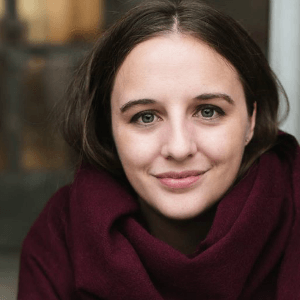Dr. Jeanne Safer, sibling guru and author of The Normal One and Cain's Legacy, says, "90 percent of people over the age of 60 have a sibling." For many of us, our relationship with our siblings is the longest one we'll have. Jeanne is a guest on this episode of Dear Sugar. She talks to hosts Cheryl Strayed and Steve Almond about why sibling relationships are such a taboo topic.
"We recognize our siblings before we recognize our fathers," Jeanne says. And yet, we don't seem to like talking about them very much. To use a famous example, Sigmund Freud was one of eight kids and according to Jeanne only mentions siblings four times in his entire works. "There are more references to Siberia!" she says.
A listener writes in who is scared having another child will create a toxic sibling environment for her daughter. Steve, who is a twin, says siblings do form their own "subfamilies…cut off from the world of the adults." His sibling experience wasn't great, he explains. "There was a kind of antagonism and competitiveness, and a feeling of emotional deprivation." I am wary of this: of course Steve may have had a hard time, but putting that down to the existence of his siblings—as opposed to specific external factors—seems silly. Cheryl says this listener is overthinking. And quite frankly, I'm with Cheryl.

My sisters and I all fought like crazy, and we were and are fine, and all extremely close (unless there's something you four aren't telling me.) All families are complex, and some wounds run deeper than others, but without other serious incident, I don't think that sibling dramas are inherently dangerous—of course, there's always some kind of external incident, that's how life goes. But I'm sure my tangles with my sisters made me better. Like Cheryl says, you have no idea what your children (and their relationships) are going to be like until you meet them. And only children have their own baggage, too.
When Steve talks about parental love as if there's a finite amount which kids have to compete for, it makes me kind of annoyed. As someone once said, "Love is not a starvation economy." You might worry you can't possibly feel the same amount of love for another baby as the first, but turns out you can. It's the glory of babies. "You're going to have two, or three, or five or six loves of your life," says Cheryl. Love is not something that runs out.
If this is really a big fear in our minds when thinking about kids, we need to a) think about love a whole lot differently, and b) remember, as Cheryl says, that not giving your child a sibling because of this anxiety, "Is potentially robbing them of the pleasures, the joys, the things we can learn, not just from loving a sibling, but having conflict with them and resolving conflict with them."
"And having to share love," says Steve, "As we have to do in the world." Grrr. See my thoughts on this above, Steve. He says something I do agree with though, that his brothers are his teachers. Another listener writes in about being caught between his elder half-brother and his parents, and Steve suggests rather than the listener trying to smooth over the debate, it's a good chance for him to learn more about his half-brother. Cheryl agrees that it's "an opportunity to get closer, and to understand his perspective."
Steve points out that different children experience the same family very differently. It seems obvious, but I think it's a really good point—and it's definitely something I often forget myself (sorry guys.) He reflects how sometimes as younger siblings we are unaware of what our older siblings absorb, and quotes a beautiful line from Sharon Olds' poem, The Elder Sister: "But now I see I had her before me always as a shield."
Speak to anyone with siblings, and whatever rivalries and fights they might have, Jeanne's words probably ring true: "They back you up like nobody else does."
instant happy in your
mailbox every day.


